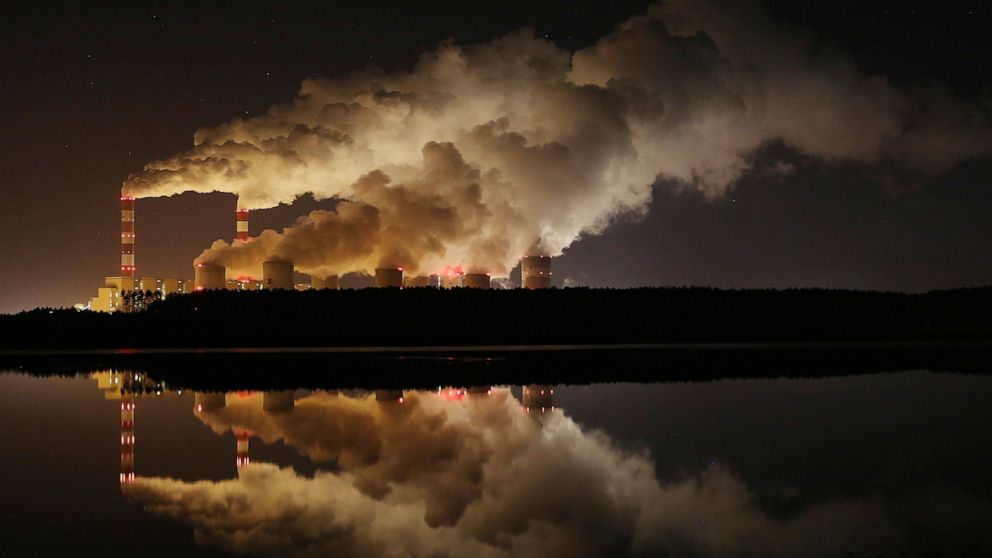Tough budget talks risk delaying EU’s new emissions target
European Union leaders are under pressure to deliver an updated climate target this month
BRUSSELS — Under pressure to deliver an updated climate target this month, European Union leaders are unlikely to agree on a more ambitious number when they meet this week if they can’t compromise on the 27-nation bloc’s long-term budget, top European diplomat says.
The last time EU leaders discussed climate targets in October, they could not immediately adopt a proposal requiring unanimous support to cut greenhouse gas emissions by at least 55% by 2030 compared to 1990 levels, and decided to try again during their December summit.
But a dispute over the bloc’s money has since emerged as Poland and Hungary now threaten to veto a major coronavirus pandemic aid package and the EU’s budget for 2021-2027 because of a mechanism linking EU funding with members’ adherence to democratic standards.
According to the diplomat, who was not authorized to speak publicly before the EU summit that starts talks Thursday, it will be “difficult to see” any agreement on climate if there is no agreement on the EU’s long-term budget and recovery package.
In her ambition to make the EU carbon neutral by mid-century, the president of the European Commission, Ursula von der Leyen, has said she wants 37% of the 750 billion euros (nearly $900 billion) in the coronavirus recovery money to be given to EU countries to spend on environmental objectives.
A report published Monday by environmental groups gave the EU a “high” performance rating for its climate efforts, weighed down by the poor performance of members such as as Hungary, Slovenia and Poland.
Audrey Mathieu, a senior analyst at the group Germanwatch, which co-publishes the annual Climate Change Performance Index, said the 27-nation bloc stands at a crossroads.
Noting that the European Parliament has called for a 60% drop in emissions, not including measures to remove carbon from the atmosphere, Mathieu said the current draft proposal for a 55% cut being discussed by leaders in Brussels would be a “a huge step, but does not go far enough.”
“This December council will set the bar for the EU’s overall climate ambition for the coming decade,” she said.
Even before the budget spat, EU eastern countries had been reluctant to commit to a more ambitious climate goal, arguing about the social and economic costs of a quicker transition to a greener economy. Poland, which gets the vast majority of its energy from coal, did not commit last year to the EU’s 2050 climate neutrality goal and has asked for more details about the measures planned to deliver the revised emissions target.
World leaders agreed five years ago in Paris to keep the global warming increase to below 2 degrees Celsius (3.6 degrees Fahrenheit), and ideally no more than 1.5 degrees C (2.7 F) by the end of the century. Under the Paris accord, countries are required to submit updated climate targets by the end of this year.
British Prime Minister Boris Johnson announced last week he wants the U.K. to cut greenhouse gas emissions by at least 68% from 1990 levels by 2030 — a more ambitious goal than the EU’s.
Another delay in revising the EU’s current 40% emission cuts target for 2030 up to 55% would also be particularly ill-timed ahead of the virtual Climate Ambition Summit marking five years since the Paris agreement. The event on Saturday will be co-hosted by the U.K. with the United Nations and France.
The aim of the virtual summit is to maintain international momentum on combating global warming ahead of the next round of annual U.N. climate talks in November 2021. This year’s gathering was postponed due to the coronavirus pandemic.
———
Frank Jordans in Berlin contributed.
———
Follow AP’s climate coverage at https://apnews.com/hub/climate
![]()


